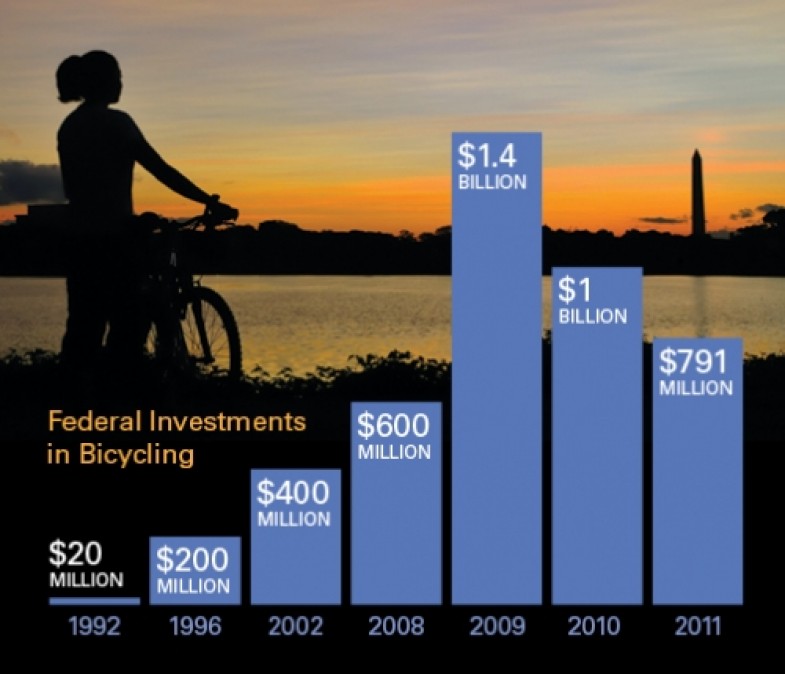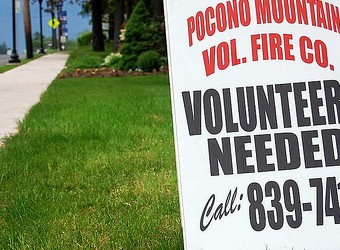The Tea Party’s attack on the commons in Congress takes many forms, ranging from weakening environmental regulations to slashing programs that help the poor and middle class. Thankfully they’ve encountered fierce resistance on many fronts, even some where they never expected to face controversy like federal funding for bike and pedestrian projects.
Their argument against efforts to make pedestrians and bicyclists safer goes like this: Biking and walking are a frivolity that does not merit federal support in these tough economic times, and bicyclists especially are a selfish special interest group whose hobby can no longer be coddled in the face of huge budget deficits.
They go on to say that transportation funding must be exclusively devoted to motor vehicles, as it was prior to 1991 when George H.W. Bush signed legislation allowing a small portion of the transportation budget to be used for biking and walking improvements (which today amounts to a 1.6 percent of the overall surface transportation budget even though 12 percent of all trips across the country are made on foot or bike).
What Tea Party zealots overlook is that sidewalks, trails and on-street bike facilities—commons that make biking and walking safer and more popular—cost a fraction of what it takes to build or widen roads. In the long run, more money invested in biking and walking projects will prove the cheapest way to reduce traffic congestion. Case in point: The InterCounty Connector, a 19-mile stretch of highway that opened in the suburbs of Washington last year cost much more to build than all federally funded bike and pedestrian projects last year.
So in light of these harsh attacks you’d expect the mood at the National Bike Summit—an annual gathering of bike riders, shop owners and industry officials—held last week in Washington, D.C., to be decidedly downcast. But actually the mood was cautiously upbeat because of strong resistance from the public and many Congress members to proposals to strip bike and ped funding from the transportation bill.
Proposals to eliminate designated bike and ped funding were beat back in the senate three times, leading to the passage of the Cardin-Cochran amendment (proposed by Sen. Ben Cardin, D-Maryland, and Thad Cochran, R-Mississsippi) which protects funding. The House of Representatives, where Tea Party influence is strongest, has been unable to agree on a transportation bill. So they have voted to extend the 2005 bill until the fall, which protects bike and pedestrian int eh meantime.
Adapted from Shareable magazine, an On the Commons partner promoting new and old forms of sharing throughout modern society.







